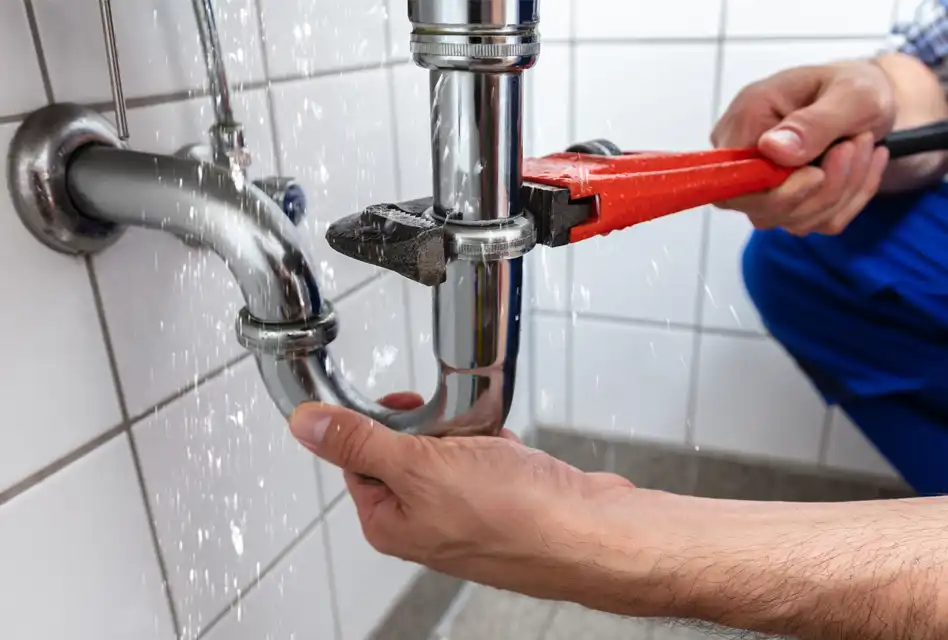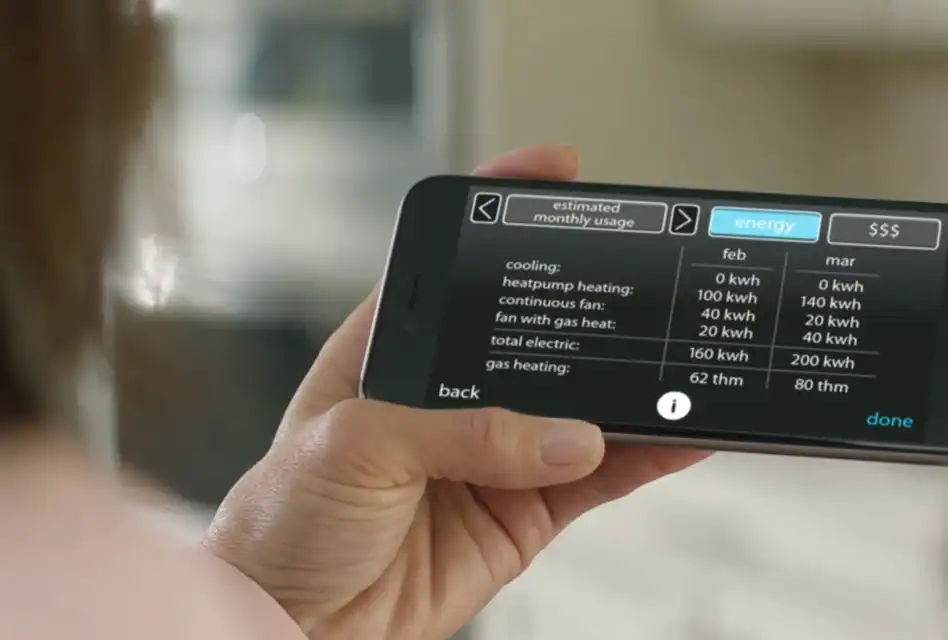So, You Just Got a Fantastic Bid on a New Furnace That’s 20 Percent Lower than Any Other Such Bid . . . What Should You Do?
John and Mary decide it’s time to invest in a new furnace. After all, their current one is nearly 25 years old and they’ve had to put some money into it the past few years.
They call the ABC Heating Company that’s been maintaining the furnace and ask if someone can come to the house, do an assessment and provide a bid on a new, high-efficiency unit.
With a reasonable bid in hand, they decide to ask another couple of HVAC companies to provide a competitive bid.
You know, just to make sure that they’re getting their money’s worth. So, they randomly choose two other HVAC firms from the internet, give them a call and ask for another assessment and bid.
The next day, XYZ Furnace Company shows up and after their assessment, provide a bid that’s within two percent of the initial bid.
The following day, Joe’s HVAC Company shows up in a shiny, new van and Joe, the company’s owner, goes on to provide his bid.
Much to John and Mary’s surprise, Joe’s bid is 20 percent lower than the previous ones.
Mary’s delighted, “Now we can buy that 55-inch flat screen we’re been looking at.”
With a handshake, the deal is done, and Joe is on his way.
The following week, Joe shows up and drops off the new furnace in John and Mary’s garage. John is a bit suspect that Joe has his 16-year old kid with him but is not overly concerned. After all, Joe drives a shiny, new van, so he must be legit.
Fast forward a couple of months and the furnace still sits in John’s garage, so he gives Joe a call who apologizes profusely, saying he’s been extremely busy, but assures him the furnace will be installed before the heating season.
True to his word, Joe shows up the first week in September and he and his brother install the furnace. Once done, he escorts John to the thermostat upstairs, turns on the heat button and pushes the temperature up to 75 degrees. The furnace kicks on and, soon, hot air is streaming from the vent. All is good in John and Mary’s household.
Fast forward to mid-December when John and Mary and the kids are watching a Steelers game on their new 55-inch flat screen when they suddenly hear a loud bang from the basement.
At the same time, the furnace stops running.
John immediately runs down to the basement but discovers nothing out of the ordinary, no loose parts on the basement floor. He then goes back up and plays with the thermostat, with no results. So, in a mild panic, he calls Joe’s HVAC Company, only to find that their number has been disconnected.
Now in full panic mode, he calls the ABC Heating Company that gave him the original bid and asks if someone can PLEASE come and take a look at his disabled furnace.
You might be surprised to learn that our service technicians here at Phillips Heating and Air Conditioning take such calls.
More often than not, we find it’s the result of a poor-quality product or shoddy workmanship or a combination of both.
So. what’s all this fuss about not accepting the low bid without doing some homework?
Let’s face it. Choosing the lowest bidder can look like a smart, money-saving move, but it rarely works out that way.
Every contractor is in the business to make money and if you accept the lowest bid without digging a bit deeper into the process, you’ll either end up with quality issues or paying more than the original quote. Either way, you lose.
Before you agree to any proposal, consider this information carefully.
Some contractors will simply throw out a low bid as a negotiating strategy.
- Honest contractors supply their best bid up front and will include all the specifics on materials and installation. If you are given a bid without an explanation or on-site consultation, you should not only question it, but the skill and professionalism of the contractor as well. Here’s a bit of advice: Bids written on the back of business cards are meaningless.
Every contractor is in business to make money.
- If you are given a bid that is 15 percent or more below another bid, they are simply not bidding the same job. Experienced contractors will, for the most part, be rather uniform in their bids. If someone’s bid varies greatly, they may be cutting corners or neglecting important facts. No one works for free. To make money, these exceptionally low bidders will most likely swap quality materials for lower quality ones or take shortcuts on installation to save labor costs.
Some contractors hide behind low prices.
- Often, a low bidder isn’t certified, and they are hoping if they offer a lower price, you’ll ignore other deficiencies. Keeping away from these types of contractors is simply a good move. It’s also standard practice for less reputable contractors to have “hidden costs” they spring on you later on, when everything is torn apart and you feel like you can’t back out without major disruption or loss of what you’ve already invested.
There are some “nice folks” that may give you a bid that “is really great.”
- If a bid seems a bit too good to be true, it probably isn’t. Make sure you don’t get fooled.
Low bidders often save money by not being properly insured or don’t carry enough insurance.
- Often, contractors with substantially lower bids are not properly insured, which means you won’t be protected in the event of loss or damage. Also, keep in mind that incorrect installation or shortcuts on installation can void the manufacturer’s warranty and your homeowner’s insurance may not pay for any damages incurred.
Another familiar scam with low bids entails a contractor declaring he wishes to use your project for “advertising purposes” or as a showcase piece for his portfolio.
- Just say no and walk away. Again, an extremely low bid is often a signal for inexperience, cutting corners or even worse.
Some contractors cut corners not just by using cut-rate labor but by making use of lesser quality materials.
- “Some homeowners are paying for a Kia and expecting a Cadillac,” says the executive director of the Maryland Home Improvement Association. “There’s a wide range of quality and contractors could do a better job of explaining, such as, ‘I’m offering this price, but this is the quality of materials and of workmanship.’ “
According to the EPS’s Energy Star website, almost half of all HVAC systems are installed incorrectly, reducing their efficiency by up to 30 percent. So, finding an HVAC pro who does it right is worth the time and expense.
Do your homework
If you’re seriously considering hiring a contractor to do your HVAC project, make sure you do your research in advance. Ask questions and get all the answers in writing. A little legwork before you sign a contract could save you a great deal of time, effort and aggravation down the road.
To be a bit more specific, let’s look at some of the tactics you should employ prior to accepting a bid and, then, after selecting the contractor.
True, several of these “tactics” were described in last month’s blog on staying away from an unqualified contractor but they are critical and certainly worth repeating.
Ask questions.
- When it comes to meeting a potential contractor (and you should do face-to-face interviews when you’ve narrowed your list down to a least three candidates), it’s helpful to have a list of written questions so you don’t forget something important. Examples might include “What local trade associations do you belong to?” After the meeting, call these organizations and check to see if this contractor is a member in good standing.
Another question, “How long have you been in business?” Ask for proof as it’s not unusual for some unscrupulous contractors to claim “10 years in the business,” when, in fact, they’ve been an HVAC contractor for a few months.
Ask for recent references.
- The key here is “recent” references. A reputable contractor is ready and willing to reveal contact information of at least three homeowners they’ve worked with in the last year or so. If they can’t, it might mean there’s been a slippage in their work quality.
Check references carefully.
- DO check references and, if possible, look at a portfolio of finished projects. DO NOT let a contractor’s charm sway you. The best con artists can “talk a dog off a meat wagon.” If you’re investing a considerable amount of money, you want to be sure the contractor has a good track record by contacting these references.
Investigate the heck out of them.
- The internet may be great to find a recipe for fettuccine alfredo, but when it comes to picking a contractor, the old-fashioned way is still best. Talk to family and friends about HVAC contractors they’ve worked with. Ask around the neighborhood. If you get a lot of negative feedback about a contractor, it’s best to avoid them.
Get an itemized bid.
- Every contractor should provide you with an itemized bid where it lists, item by item, everything you’ll be paying for. It should include all labor costs, all materials, all permit fees and other miscellaneous expenses that the contractor expects to bill you for. Some bidders are hesitant to provide this level of detail, but it’s one of the quickest ways to identify discrepancies or omissions in bids.
Most well-thought-of contractors will also keep you informed of any unexpected developments and will discuss solutions with you, including estimated extra costs. They’ll show you problem areas and explain the process for fixing them.
Have the bidder provide an installation schedule that indicates how they intend to complete the installation and in what time period.
- Make sure the schedule shows the number of installers and other employees that will be on site.
Negotiate for the best price, but don’t undervalue your contractor. DO negotiate for the best price.
- Pick the best contractors and give them the chance to bid against one another. Most contractors are willing to negotiate a bit. If you can’t get them to negotiate on labor costs, ask them to offer discounts on materials. However, don’t get obsessed with negotiating. Contractors often pay high insurance and overhead costs; they want to do you project, but if you’d like a high-quality product, keep in mind that a reputable contractor with good references might walk away if he thinks your undervaluing his skills.
Ask to see a certificate of insurance.
- You want to be certain the contractor has general liability coverage and worker’s compensation. Sure, insurance isn’t the most thrilling thing to check for, but you might be astonished by how “thrilling” things turn out when an uninsured contractor files a lawsuit against you for an injury that happens on the job.
Insist on a contract and understand the terms. DO insist on a comprehensive contract.
- Surprisingly, many people think a contract locks them into a set price, which is not necessarily the case. Anyone can write a number down on a piece of paper. The most important aspect of any such contract is the detailed scope. Even for small projects, this is key to getting services with a set price.
Finally, Trust your gut!
If you’ve received three bids and two of them are within a reasonable difference, but the third bidder is significantly lower, this should be a major red flag. All the whys and wherefores we’ve described above should come into play with any exceptionally low bidder!







